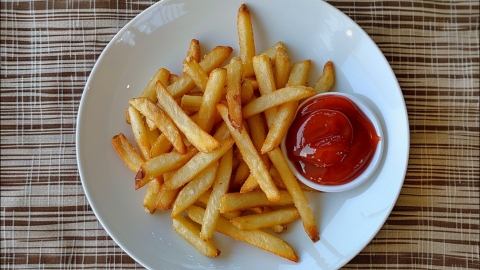Can I eat McDonald's after getting a nose job?
Generally speaking, rhinoplasty refers to nose augmentation surgery. This procedure primarily involves filling the nasal area with autologous tissue, allogeneic tissue, or tissue substitutes to elevate and improve the shape of the external nose. The general reference price for rhinoplasty is 3,000-8,000 yuan per session, with visible improvement typically noticeable 1-3 months after surgery. Whether one can eat at McDonald's after rhinoplasty mainly depends on the specific ingredients of the food. It is not completely prohibited, but foods that are irritating or may hinder wound healing should be avoided. Detailed analysis is as follows:

The first 1-2 weeks after rhinoplasty are a critical period for wound healing. During this time, consumption of spicy, greasy, high-salt, and allergenic foods should be minimized. At McDonald's, burger sauces containing chili or pepper, and fried foods such as chicken nuggets and French fries, may stimulate local vasodilation, exacerbating swelling or delaying healing. In contrast, mild options without spicy seasonings, such as regular burgers without hot sauce or vegetable salads, generally do not significantly affect the wound.
In addition, maintaining a balanced nutritional intake, including adequate protein and vitamins, is essential post-surgery to promote tissue repair. If choosing to eat at McDonald's, it is advisable to opt for mild, minimally seasoned foods and avoid excessive consumption of high-fat and high-salt items.
If necessary, it is recommended to visit a legitimate hospital and undergo the procedure under the guidance of a qualified physician. Following medical advice for postoperative care, such as keeping the wound clean and avoiding strenuous activities, is beneficial for recovery.





